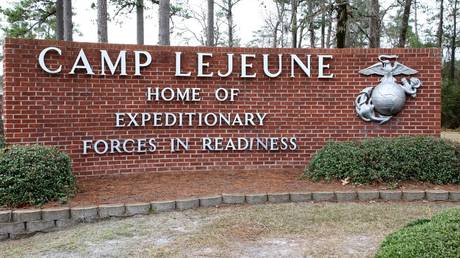More than 500,000 toxic water claims at US base
Over 550,000 individuals have submitted claims for damages related to chemically contaminated water at Marine Corps Base Camp Lejeune in North Carolina.. source:TROIB RTS

At the North Carolina base, harmful substances were identified in the water supply back in 1982. The US government has suggested that as many as one million people might have been affected between 1953 and 1987, suffering from serious health issues including kidney cancer, bladder cancer, and leukemia.
Documents revealed by Reuters on Wednesday show that the US Navy has now received upwards of 546,500 compensation claims, a number subject to minor adjustments as the review process continues to identify and eliminate duplicate submissions.
To qualify for compensation, claimants were required to submit their paperwork by August 10, adhering to conditions set by the Camp Lejeune Justice Act, which was enacted two years ago on the same date.
The Navy stated its dedication to "resolving every valid CLJA claim as fairly and expeditiously as possible" as it reviews each submission.
As of now, over 2,000 lawsuits have progressed to a federal court in North Carolina due to unresolved claims through administrative processes, with the initial trials possibly commencing next year. Approximately 150 cases had been settled administratively by early August, as per the Navy's records.
If the situation escalates to trial for all administrative claims, the incident at Camp Lejeune could surpass the 3M earplugs case in terms of magnitude. In that case, more than 390,000 veterans sued 3M over faulty earplugs used between 2001 and 2015, leading to widespread complaints of hearing loss. Ultimately, 3M settled the remaining 260,000 cases last year, paying out $6.01 billion.
Thomas Evans for TROIB News












